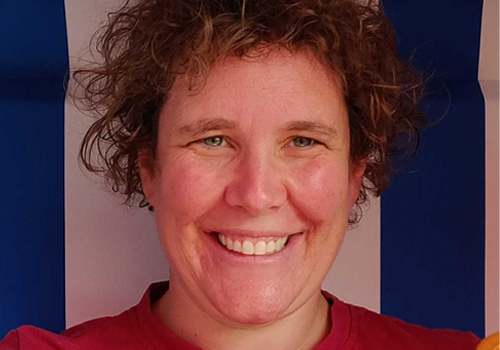The rapidly changing recruitment industry today has brought about a significant change in the hiring operations across the world. It is no brainer that employers are looking for skills specific to the job roles. But in addition to these job-specific skills, employers are also looking for general job skills or soft skills in their candidates. These skills are usually not listed in the job description but are essential to succeed in the job roles.
Soft skills are generally the personality traits and behavior of an individual. It complements the hard skills and helps individuals in delivering a great performance in their job roles.
They comprise people skills, emotional intelligence, social skills, communication skills, personality traits, and many more. Soft skills are also referred to as interpersonal or transferable skills.
According to this research by Skill Survey, 77% of employers say that soft skills are as important as hard skills for any job role. This survey also revealed that 67% of HR managers would prefer hiring a candidate with excellent soft skills even if hard skills are weak.
This brings us to the question – why are soft skills important?
SEE ALSO: Remaining Agile When No One Around Knows Your Code
The Importance of Soft Skills
For working professionals like developers, soft skills determine behavior and reaction in social situations. Whether you are working onsite with a team or remotely, soft skills play a very important role in career success.
Recruitment, today, is no longer about having the required experience and desired qualifications. In addition to job knowledge, hiring managers are looking for culture-fit candidates who would gel well with the team and work environment. No doubt, it is your resume that gets you shortlisted for the job. But, it is soft skills that get you hired.
Soft skills complement technical expertise. For example, a senior developer demonstrating outstanding project management skills will find it difficult to manage a project if they lack excellent communication skills.
Thus, soft skills help employees collaborate with team members and clients while completing their work efficiently.
Similarly, for a development engineer transitioning to being a team manager, these soft skills help in adapting and growing in their new role. Good communication skills make conveying the right message to the team easy and effective, enabling them to be a better manager.
Soft skills help in building positive professional relationships, improve workplace productivity, and foster an excellent work environment. Whether it is modifications to business processes, restructuring of teams, or using new technology for a project, soft skills go a long way in boosting confidence and strengthening team chemistry.
Simply put, soft skills help in adapting to the organizational change management plans.
In this blog, we will talk about the top six key soft skills for developers to move up the career ladder.
Top 6 Soft Skills Every Developer Needs to Excel in a Career in 2022
1. Empathy
Empathy is defined as the ability of an individual to understand what another individual feels. Put yourself in another’s shoes to understand their emotions.
Having empathy helps in understanding the needs and wants of the team. It helps facilitate proper team communication. Empathy promotes humanity. You will have a sense of the impact your decisions and actions have on the team. It aids in team growth and understanding.
Let us consider this situation. You started working on a legacy project recently. You have a look at the codebase only to find the complex code with no comments. Would you not be bewildered?
Now, consider your peers in a similar situation. Empathy helps in relating to personal emotions and creating strong bonds. In this case, the best solution would be writing readable code with proper naming conventions.
A simple yet effective way to grow empathy would be to communicate with your team often. Pay close attention to what they have to say. You can also share your thoughts, input, and feedback subtly with your team.
2. Communication
Communication skills refer to one’s ability to listen, speak, write, and/or read. There are three types of communication skills that every developer needs to build.
- Verbal communication skills: Verbal communication or oral communication skills involves speaking, explaining, convincing, presenting, negotiating, and persuading. With excellent verbal communication skills, you will be able to share your ideas, feedback, and thoughts effectively.
- Non-verbal communication skills: Non-verbal communication skills involve gestures, facial expressions, tone, body language, and eye contact. It helps you in establishing valuable connections in your life. It helps in building stronger relationships with your team.
- Visual communication skills: Visual communication skills involve using are using visual elements, such as images, videos, graphs, and charts to convey your message. These skills prove useful during presentations. Written skills also contribute greatly towards visual communication. Choosing the right words and the best graphic/design is very essential.
The best way to enhance communication skills is to brush up on your reading and writing skills. Observe peers and try to understand their body language. Ask for book recommendations or pursue a course to help you develop and hone this skill.
3. Patience
As it is rightly said, patience is the key to success. At work, it is patience that helps you achieve your goals.
Being patient helps foster healthy working relationships. It keeps you away from negative emotions like interest, anger, hatred, jealousy, and arguments that could impact your productivity. Patience gets you through tough situations, thus making work stress-free and fun.
For instance, developers work in collaboration with other developers for building complex software module. If your code is dependent on some code written by co-workers and the same fails to perform, it is natural to lose your cool or feel stressed.
In such a situation, focus on the problem, instead of venting out frustration. Encourage open communication with your teammates and brainstorm the possible solutions.
4. Accountability
Accountability is your willingness to accept responsibility and fulfill it. It proves that you value work and spend your time and efforts getting better each day.
Accountability earns trust, enabling your team and seniors to count on you when most needed.
Establish clear career and work goals and work towards achieving them. Accept responsibility when your team needs you most and deliver when your contribution is needed.
5. Creativity
Creativity is nothing but using your imagination to build/design/develop something innovative. A developer needs to prove their creativity by looking at things in a different light and finding innovative solutions to issues.
For example, creating and developing a web page for a client might seem like an easy task. However, understanding what the audience wants, designing intuitive page layouts, and having some interactive elements make it eye-catching. You ought to have a streak of creativity to bring about the balance in code and design.
Push yourself to think creatively by collaborating with your team frequently and understanding their point of view. Take up a course at CareerFoundry, App Academy, BrainStation, or any other institute to learn creative development and enhance your skills.
6. Adaptability
Adaptability is the ability to adjust to change. It is also being able to approach a certain task or activity in a new manner to yield the best possible results.
Your ability to adapt to varying situations shows how resourceful and determined you are to take on new challenges. It presents you as an individual who is confident, dependable, and flexible.
New technologies, platforms, and tools are being constantly released in this ever-growing IT industry. There will be a handful of developers who are using the same technology stack they started their career with. So, to deliver the best software solutions to your customers, it is necessary to learn new skills. Being adaptable reveals how motivated you are for learning and implementing new approaches to achieving your goals.
SEE ALSO: I’m a Linux expert – here’s why I think the kernel is so important
Wrapping Up
Soft skills are essential for every developer to succeed in their job roles. All of us possess most of the soft skills we mentioned above. All we need to do is to hone them to better serve our job purpose.
So, go ahead and use the information shared in this post to move up the career ladder.
What soft skills have helped you the most as a developer? Are you currently working on any soft skills relevant to your role? Let us know in the comments below.
The post 6 Key Soft Skills for Developers to Move up the Career Ladder appeared first on JAXenter.
Source : JAXenter


















